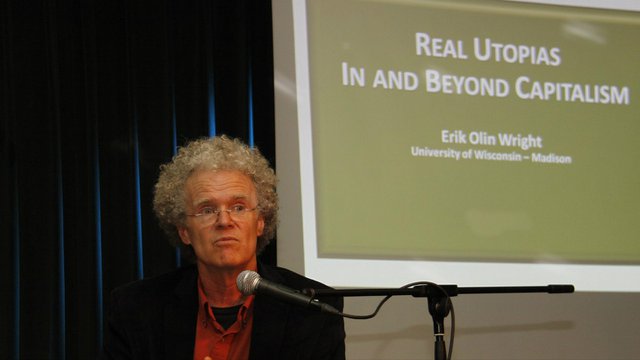|
We are the earth, through the plants and animals that nourish us.
We are the rains and the oceans that flow through our veins.
We are the breath of the forests of the land, and the plants of the sea.
We are human animals, related to all other life as descendants of the firstborn cell.
We share with these kin a common history, written in our genes.
We share a common present, filled with uncertainty.
And we share a common future, as yet untold.
We humans are but one of thirty million species weaving the thin layer of life enveloping the world.
The stability of communities of living things depends upon this diversity.
Linked in that web, we are interconnected — using, cleansing, sharing and replenishing the fundamental elements of life.
Our home, planet Earth, is finite; all life shares its resources and the energy from the sun, and therefore has limits to growth.
For the first time, we have touched those limits.
When we compromise the air, the water, the soil and the variety of life, we steal from the endless future to serve the fleeting present.
We are the rains and the oceans that flow through our veins.
We are the breath of the forests of the land, and the plants of the sea.
We are human animals, related to all other life as descendants of the firstborn cell.
We share with these kin a common history, written in our genes.
We share a common present, filled with uncertainty.
And we share a common future, as yet untold.
We humans are but one of thirty million species weaving the thin layer of life enveloping the world.
The stability of communities of living things depends upon this diversity.
Linked in that web, we are interconnected — using, cleansing, sharing and replenishing the fundamental elements of life.
Our home, planet Earth, is finite; all life shares its resources and the energy from the sun, and therefore has limits to growth.
For the first time, we have touched those limits.
When we compromise the air, the water, the soil and the variety of life, we steal from the endless future to serve the fleeting present.
This we believe
Humans have become so numerous and our tools so powerful that we have driven fellow creatures to extinction, dammed the great rivers, torn down ancient forests, poisoned the earth, rain and wind, and ripped holes in the sky.
Our science has brought pain as well as joy; our comfort is paid for by the suffering of millions.
We are learning from our mistakes, we are mourning our vanished kin, and we now build a new politics of hope.
We respect and uphold the absolute need for clean air, water and soil.
We see that economic activities that benefit the few while shrinking the inheritance of many are wrong.
And since environmental degradation erodes biological capital forever, full ecological and social cost must enter all equations of development.
We are one brief generation in the long march of time; the future is not ours to erase.
So where knowledge is limited, we will remember all those who will walk after us, and err on the side of caution.
Our science has brought pain as well as joy; our comfort is paid for by the suffering of millions.
We are learning from our mistakes, we are mourning our vanished kin, and we now build a new politics of hope.
We respect and uphold the absolute need for clean air, water and soil.
We see that economic activities that benefit the few while shrinking the inheritance of many are wrong.
And since environmental degradation erodes biological capital forever, full ecological and social cost must enter all equations of development.
We are one brief generation in the long march of time; the future is not ours to erase.
So where knowledge is limited, we will remember all those who will walk after us, and err on the side of caution.
This we resolve
At this turning point in our relationship with Earth, we work for an evolution: from dominance to partnership; from fragmentation to connection; from insecurity, to interdependence.
At this turning point in our relationship with Earth, we work for an evolution: from dominance to partnership; from fragmentation to connection; from insecurity, to interdependence.



